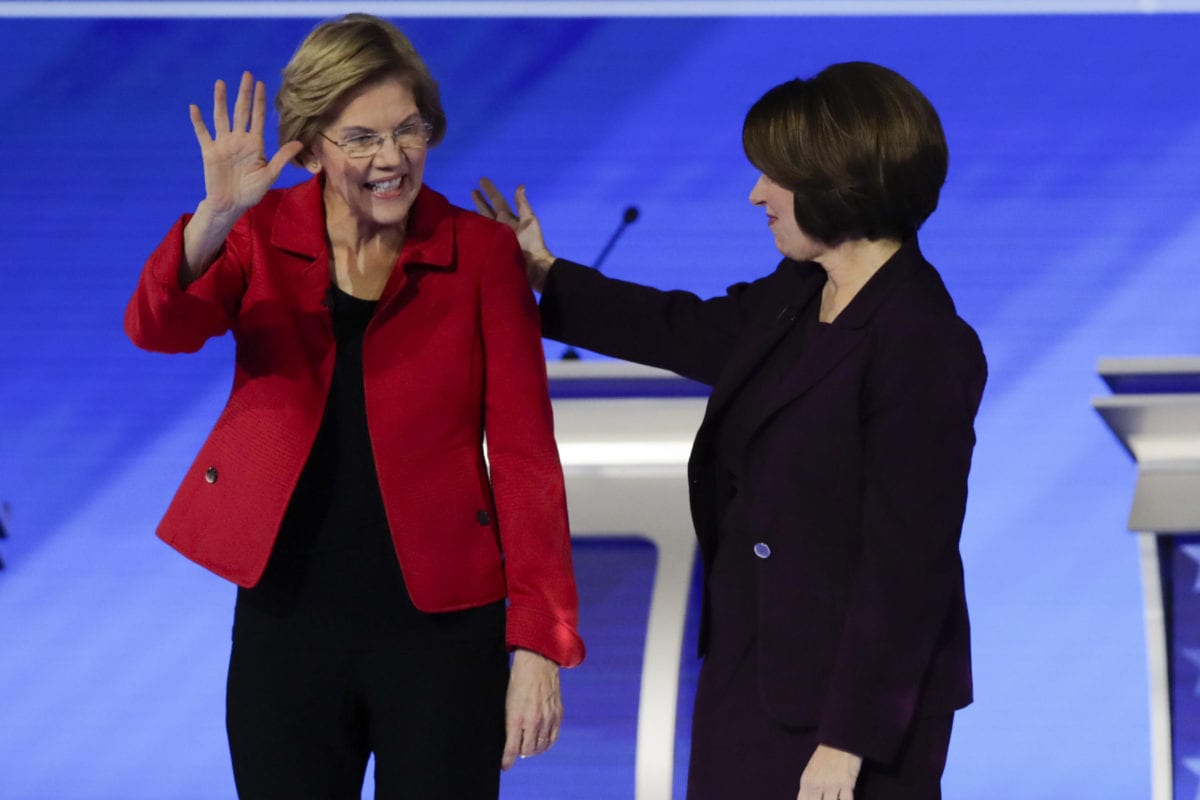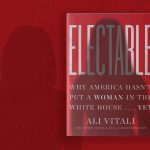A year ago, the 2020 Democratic primary began with six female candidates, the largest cohort of women running at once to become the presidential candidate for a major political party. On Thursday, the exit of Massachusetts Sen. Elizabeth Warren from the race virtually closed the door on the prospect of electing a woman president this cycle.
“One of the hardest parts of this is all those big promises and all those little girls who are going to have to wait four more years,” Warren told reporters and supporters as she suspended her campaign at her home in Cambridge, Massachusetts.
Warren’s exit highlights another reality: In a fear election, “electability” — the 2020 Democratic primary buzzword that described a candidate’s chance to beat President Donald Trump in the fall — still means choosing an older, White man. Former Vice President Joe Biden and Vermont Sen. Bernie Sanders — both White, male septuagenarians — are the current frontrunners.
“That feels like a cop out,” said Black Voters Matter co-founder LaTosha Brown. “In American politics, the default position is always the White man can save the day.”
The term “electability” has loomed over this primary cycle. People fretted about the concept in the media and before entering the ballot box. Others began to worry it would become a self-fulfilling prophecy.
“Asking the question [of electability] puts doubt in people’s minds constantly,” said Democratic strategist Jen Palmieri.
Arguably, it worked — to the particular disadvantage of the female candidates. Several experts and advocates say the term “electability” gave rhetorical cover to what the word truly means: That a woman cannot win the presidency.
It’s “a polite way of allowing sexist tropes like women being shrill or strident or unlikeable to persist,” said Palmieri.
Adora Jenkins, the spokeswoman for Supermajority, an organization aimed at achieving equity for women in electoral politics, said “electability” became a dog whistle in the 2020 cycle, which she said “became a master class in the impossible standards that women, and particularly women of color, have had to meet in order to succeed.”
Jenkins said her organization has talked to women who were particularly risk-averse this year, unsure of how their neighbor or strangers in other states would vote — or if they would support a woman.
“Communities in this country that have been marginalized have had to consider how their White neighbors will vote,” Jenkins said. “I don’t think that’s necessarily a consideration many White males have.”
The political and cultural question now, Jenkins said, is: “When do we no longer portray voting for women as a risk venture?”
The departure of five of the six women running for president this year — Hawaii Rep. Tulsi Gabbard remains in the race — with just 40 percent of the primary complete is stunning, both in the wake of Hillary Clinton’s historic nomination just four years ago and the “blue wave” elections of 2018 which ushered in a record number of women to Congress and restored Nancy Pelosi to her pioneering role as Speaker of the House.
It is also striking in a year in which the country will celebrate the centennial of the ratification of the 19th Amendment, which expanded the right to vote to millions of women.
Women are the majority of people and voters in America, and in 2020, they have already shaped the race. They were nearly 60 percent of primary voters in Iowa, New Hampshire and South Carolina, with Black women propelling Biden to victory in the Palmetto State, and young women fueling Sanders’ win in California.
The notion of “electability” was a question female candidates wrestled with constantly, with some attempting to point out double standards when they surfaced in real time.
In making her case for why voters should choose her, Minnesota Sen. Amy Klobuchar — a prosecutor who ran on a record of accomplishment in the Senate and a winning history with voters before dropping out of the race ahead of Super Tuesday after a poor finish in South Carolina — contrasted her credentials with those of ex-candidate Mayor Pete Buttigieg, openly questioning whether a woman with his resume would’ve been viewed as potentially presidential.
Warren — who attempted to cast herself to voters as a fighter looking to take on corruption as president — was forced to confront electability head-on, on the debate stage in New Hampshire, after controversy arose between her and Sanders about whether he told her a woman could not become president. Sanders denied the comment, effectively calling her a liar on national television.
Considered a top-tier candidate when she launched her candidacy, California Sen. Kamala Harris was confronted with the role both her race and gender would play in whether voters would choose her. The lone Black woman in the 2020 field, she struggled to convince voters and donors that she was most effective to challenge President Donald Trump in November. She dropped out of the race late last year.
Despite the challenges, the 2020 female candidates created a new foundation for what it means to be a woman seeking the role of president, a position that remains persistently masculine, said Rutgers University political scientist Kelly Dittmar.
“These women and their candidacies need to be taken into account,” Dittmar said. “They’ve continued to soften the ground for women who may come after them. All of these gendered institutions are stubborn, but the presidency — which is probably the most masculine — is going to be stubborn in changing in a way that allows those who don’t look like the traditional occupants to be successful. It takes the work of both the candidates and voters to disrupt these institutions.”
“Plenty of presidents, including John F. Kennedy and Barack Obama, weren’t electable, until they were,” said historian Alexis Coe, author of a new biography on George Washington, whose image of virility, patriotism and White masculinity virtually invented the idea of electability in the political imaginations of many Americans.
The threat of Trump — and that his victory came at the loss of Hillary Clinton, the first woman to be nominated as a presidential candidate by a major political party — fed into the electability narrative, which was weaponized against female candidates in 2020, said Emily’s List Vice President Christina Reynolds.
“Conventional wisdom defined electability as who looks like they’ve been president before,” said Reynolds, who suggested retiring the traditional definition of the word. “One woman lost to Donald Trump, and suddenly women are a risk that we can’t afford. When we frame an entire election around risk … it is not a shock that we end up with two older White men.”







